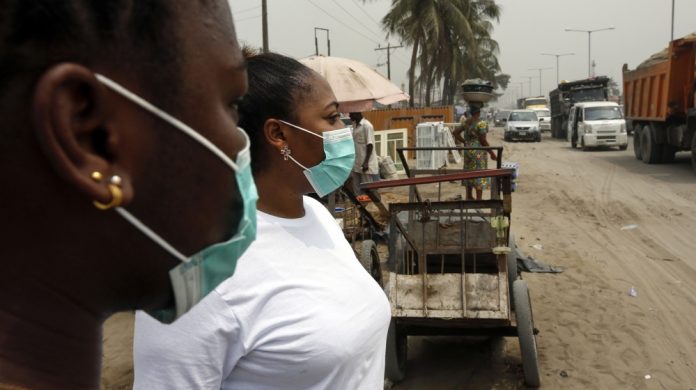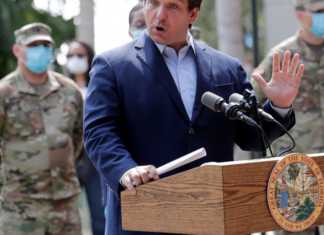
As Nigeria prepares for a partial lockdown starting Thursday, authorities are taking measures to control the rising coronavirus cases affecting the nation’s population of over 200 million.
Certain states have already initiated closures of markets, religious institutions, educational establishments, workplaces, and recreational areas since the previous week.
In Lagos, the largest city with around 20 million residents, officials have advised citizens to remain at home, allowing only essential businesses—such as grocery stores and pharmacies—to operate. Governor Babajide Sanwo-Olu emphasized the importance of avoiding all travel to and from Lagos for the time being.
In anticipation of the lockdown, many residents engaged in panic buying on Wednesday, seeking to gather necessary supplies before the restrictions take effect.
Similarly, in the capital city of Abuja, the government has announced comparable measures that will also begin on Thursday. One Abuja worker expressed relief over the decision, noting it allows for more family time and minimizes exposure to potential carriers of the virus encountered at work.
Nyesom Wike, the governor of Rivers State, which hosts the oil capital Port Harcourt, announced plans to close state borders starting Thursday evening, impacting the operations of major oil companies in the area.
As of now, Nigeria has reported 51 confirmed coronavirus cases and one fatality. Notably, several high-ranking officials, including the chief of staff to President Muhammadu Buhari and a state governor, have tested positive for the virus, prompting some government members to self-isolate after potential exposure.
In a concerning development, sources indicate that the Nigerian army is preparing to assist with the lockdown, potentially moving individuals to hospitals and enforcing movement restrictions. An internal army memo suggests plans to safeguard government food supplies from potential theft, although these details have not been officially confirmed by military authorities.
The impending lockdown raises significant concerns about the economic impact on the informal sector, which employs a large portion of the population. Michael Babajide, who operates a business center in Abuja with three employees, expressed his anxiety regarding the financial implications of the closure. He highlighted the challenge of meeting his financial obligations, including staff salaries, if the lockdown extends.
The government has yet to announce any specific support measures to assist private businesses during this crisis. Rita Egbujovbo, a resident of Abuja, raised the issue of how those living in poverty can be expected to comply with lockdown measures without government support.
As the situation evolves, the need for effective intervention to protect vulnerable populations becomes increasingly urgent.








